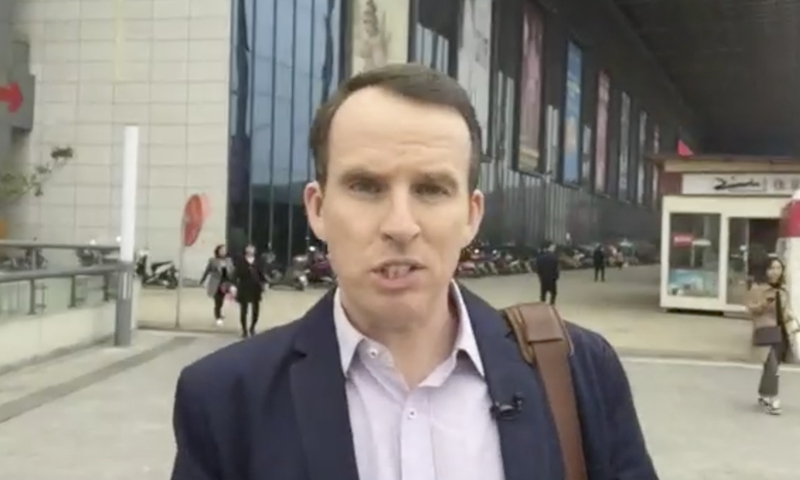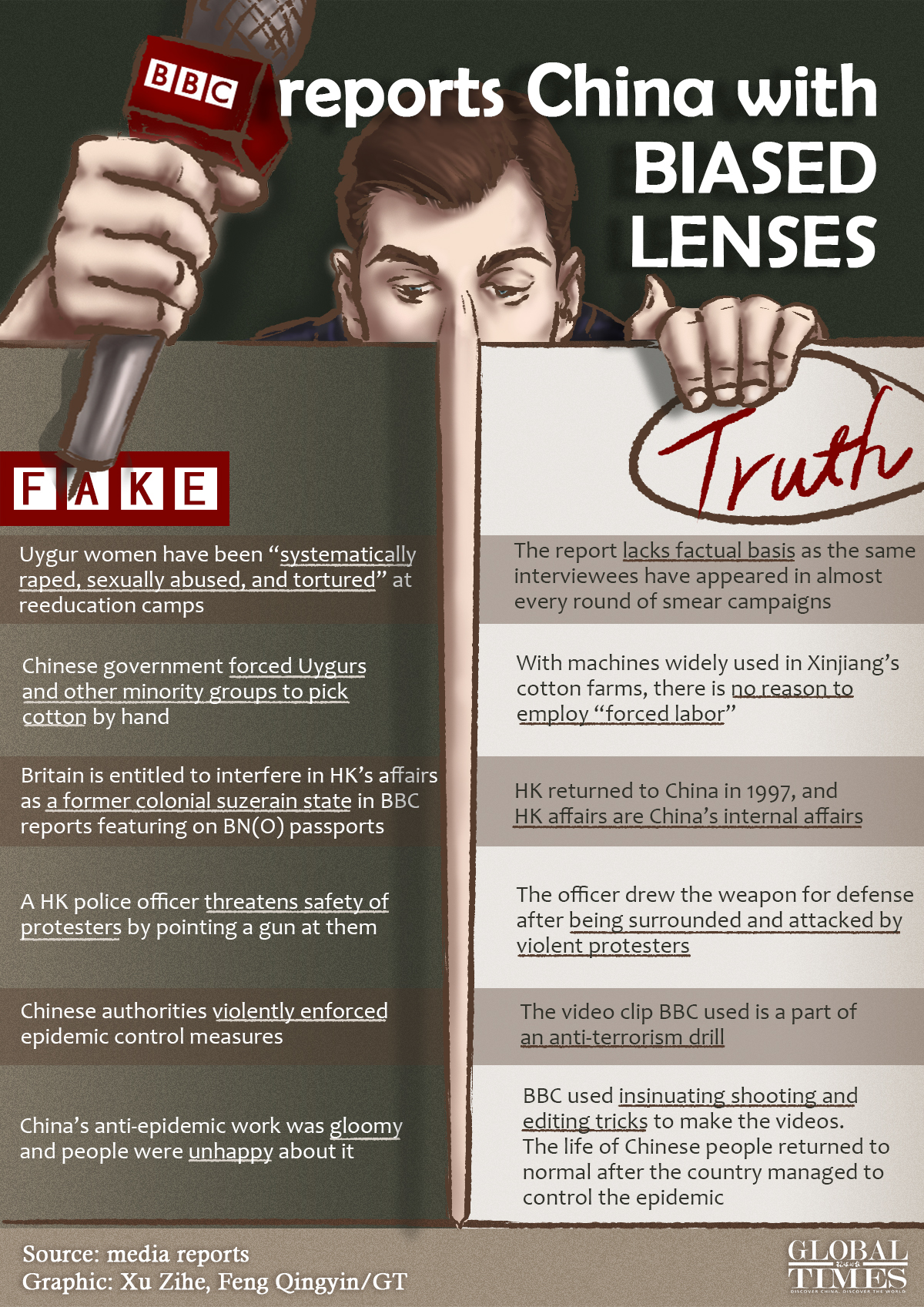The Chinese foreign ministry on Thursday called the BBC "pathetic" to use its reporter John Sudworth's abnormal departure to threaten and blackmail China, stressing that China is the actual victim of BBC's fake reports.
Sudworth did not inform relevant Chinese departments before his leave and did not go through normal departure procedures. His press card has expired and he no longer has the status of a resident foreign journalist in China, Foreign Ministry spokesperson Hua Chunying said at Thursday's press conference.
In an 8-minute speech, Hua criticized BBC for its fake, biased reports on China in recent years, especially on COVID-19 and Xinjiang related issues, which have damaged Xinjiang residents' interests and tarnished China's international image.
In response to BBC's tweet which claimed Sudworth has "relocated" from Beijing to Taiwan and his work has "exposed truths the Chinese authorities did not want the world to know," as well as the accusation from the Foreign Correspondent's Club of China (FCCC) on China's media environment, Hua said "it shows Sudworth's personality. He has not only left without notification, but also bit back on China."
The FCCC statement is a typical example of turning black and white upside down, Hua said.

File photo of John Sudworth
According to Hua, China has never recognized this illegal organization. The membership of this organization is less than half of all foreign correspondents in China, which is actually a small circle of correspondents from several countries in Europe and the US. The FCCC's so-called statement may have been crafted by a few of its so-called directors, and sometimes other journalists were even represented without prior knowledge.
The organization turned a blind eye on assistance that China has provided to foreign journalists while attacking the country's media environment and issuing no warning on Sudworth's fake reports, which completely turned facts upside down, Hua said.
The FCCC said in its statement that Sudworth's press card was only valid for a few months during the past two years, and his life had been unstable. However, Hua clarified that more than 98 percent of the press cards of nearly 500 foreign journalists in China are valid for one year. Many foreign journalists have lived and worked in China for more than a decade or even 30 years. Sudworth and his family have been in China for nine years. His wife, also a journalist, has a one-year valid press card.
"If China really threatened him, how could his family stay in China for nine years?
Does the [FCCC] know that all visas for Chinese journalists in the US are only valid for three months? Do they know that it costs $455 each time for Chinese reporters to extend a visa application? By contrast, foreign journalists in China should feel lucky.
They know it, but they pretend to be deaf and dumb," Hua said.
"You may not like China, but you are not allowed to discredit and attack China unscrupulously. If some Western media continue to put ideology above reality, it will surely further accelerate the bankruptcy of their credibility," Hua said.
The spokesperson stressed China will always and continue to be committed to providing convenience and assistance to foreign journalists in their work and reports in China, but firmly opposes strong ideological bias against China.

How does the BBC apply "results before evidence" principles when reporting on China? Graphic: Xu Zihe, Feng Qingyin/GT





